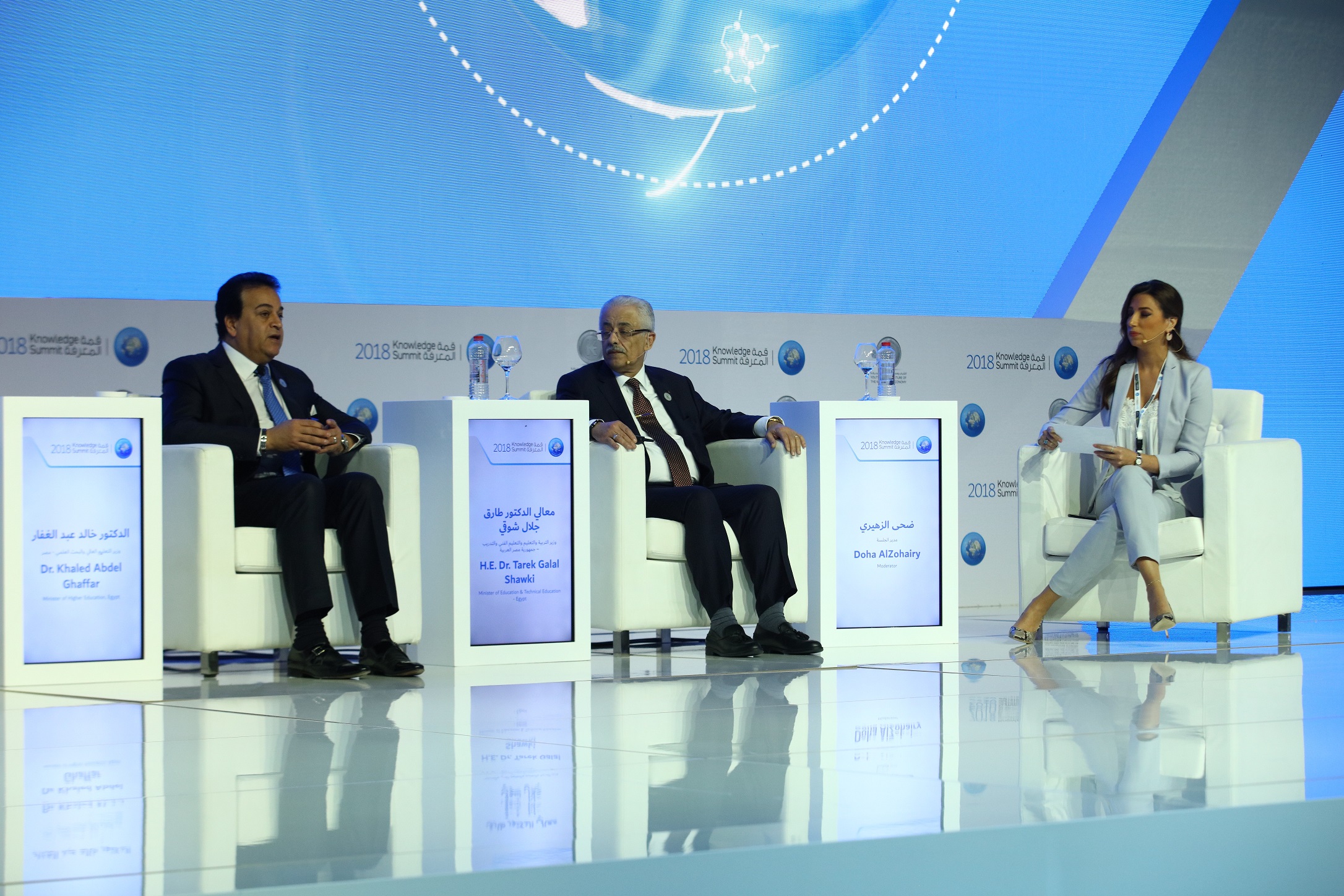Egypt’s ‘Education 2.0’ Overhaul Will Teach Knowledge Not Memorisation, Say Ministers at Knowledge Summit 2018
06 Dec 2018
Speaking at Knowledge Summit 2018, Egypt’s Ministers of Education and Higher Education, H.E. Dr Tarek Shawki, and H.E. Dr Khaled Abdel Ghaffar, explained the need to re-educate society to move away from a culture of memorisation to embrace an education system that promotes knowledge, critical thinking, and preparedness for the future that today’s students will work in.
Organised by the Mohammed Bin Rashid Al Maktoum Knowledge Foundation (MBRF) under the patronage of H.H. Sheikh Mohammed bin Rashid Al Maktoum, Vice President and Prime Minister of the UAE, Ruler of Dubai, and the directives of MBRF’s Chairman H.H. Sheikh Ahmed bin Mohammed bin Rashid Al Maktoum, the Summit is held on December 5-6 at the Dubai World Trade Centre under the theme “Youth and the Future of the Knowledge Economy”.
The two Ministers discussed the “Education 2.0” overhaul of Egypt’s education sector in a session titled “The Egyptian Model for Education Development”. The project will see traditional learning abolished to make way for a new system that focuses on the development of character, skills, and competencies that will enable a future generation to be competitive in the Fourth Industrial Revolution in line with the ambitions of Egypt Vision 2030.
With an investment totalling billions of Egyptian Pounds, schools have been equipped for the education transition with 700,000 smart devices, high-speed internet and WiFi, and fibre optics. There will be no additional costs for students to in the new system, ensuring equal access to education for across the country.
Egypt’s new educational system goes “beyond teachers spoon-feeding students” to generate genuine knowledge and intelligence. As explained by H.E. Dr Tarek Shawki, students can have high grades but that does not necessarily translate into either skills or knowledge in that subject; it could be that the student knows how to memorise and how to take the examination.
The new system aims to shift students’ sentiment from education as a “necessary evil” by rekindling a sense of joy in learning, thereby creating lifelong learners who have the capacity to think creatively, value knowledge over grades, and are no longer reliant upon text books.
The Knowledge Summit 2018 brings together more than 100 speakers including experts, decision makers and stakeholders from around the world in more than 45 discussion panels. Since its launch in 2014, the Summit has welcomed more than 5,000 participants and 300 decision makers, experts, and academics from all around the world, who took part in over 110 discussion panels and workshops.
